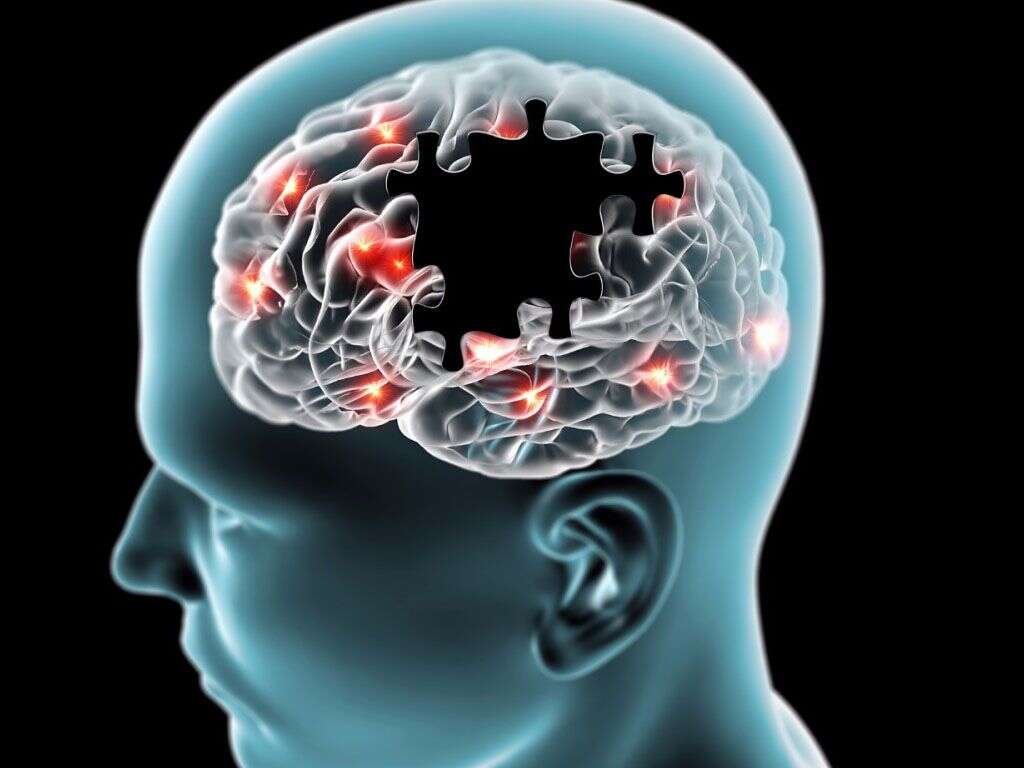What Is Dissociative Fugue?
Dissociative disorder occurs when one’s identity, actions, memories, thoughts, and surroundings lack continuity after a traumatic event. It is an involuntary defense mechanism that the mind uses to protect itself from extremely disturbing memories. Dissociative fugue is a particular type of dissociative disorder marked by memory loss and bewildered wandering or unexpected travel, sometimes under a new identity. The word “fugue” comes from the same Latin root as the word “fugitive,” and it means “to flee.” In a sense, then, a person with dissociative fugue is a fugitive trying to flee the painful memories of a traumatic event.
Due to its rarity and typical lack of observable symptoms, dissociative fugue is poorly understood. Family members, employers, and others close to the patient may assume that he or she is just pretending to have a psychological disorder in order to shirk responsibilities or escape minor life difficulties. However, the memory loss resulting from dissociative fugue is authentic, and a person who suddenly assumes a new identity because of it is genuinely convinced that that is his or her true self. There may be people who purposely mimic the symptoms of dissociative fugue for deceptive purposes, but doctors can usually tell the difference between a real dissociative disorder and mere malingering.
1. Prevalence
Part of the reason that dissociative fugue is so mysterious and misunderstood is that it is extremely rare. Researchers estimate that only about 0.2% of the population is affected by it. Female patients are more often affected than males.
However, a large traumatic event that impacts many people at the same time may provoke more cases of dissociative fugue. Researchers have observed a slight uptake after wars and natural disasters among the people directly affected by them.
2. Symptoms
Dissociative fugue has two distinguishing characteristics: amnesia and unexpected travel or wandering. While in a fugue state, the affected individual loses all memory of his or her identity or past experience prior to the initiation of the fugue. When the fugue eventually ends, he or she usually regains memories of his or her former life but will have amnesia of all events that occurred while in a fugue state.
Amnesia is common to other dissociative disorders, but what characterizes dissociative fugue is the travel away from home, which is unplanned and occurs suddenly. Some people with this condition lose any sense of identity during the fugue state. However, others assume a completely new identity that is often very different from the one from which they’ve dissociated. They do not construct this identity purposely; it happens on a subconscious level. If the new identity is challenged, people with dissociative fugue can become very defensive and confrontational.

3. Duration
Many instances of dissociative fugue only last a few hours at a time. It can be difficult for casual observers to recognize that the individual is in a fugue state because his or her behavior is normal and not unusual or inappropriate. People close to the individual may notice uncharacteristic confusion. Sometimes a relatively short fugue state can be mistaken for a bout of sleepwalking.
However, symptoms of dissociative fugue can last for days, weeks, or even months. There have been reports of a fugue state lasting for several years. During an extended duration like this, people may start entirely new lives, unaware of their old ones.
4. Causes
Dissociative fugue is strongly associated with sexual abuse and/or assault. People who experience prolonged physical or emotional abuse as a child may develop dissociative fugue, usually as an adult. Being the victim of extreme violence, such as kidnapping or torture, can also cause dissociative fugue. Other traumas that may contribute to the development of the disorder include natural disasters, automobile accidents, and combat experience.
Dissociative fugue may not manifest immediately after the traumatic event. Rather, it may take some sort of trigger to evoke the memories and force the mind to shut down in order to avoid dealing with them. For this reason, even though it is strongly associated with childhood trauma, dissociative fugue more commonly occurs in adults.

5. Risk Factors
People with dissociative fugue often have family members who exhibit similar symptoms. This suggests that there may be a genetic predisposition that makes some people more susceptible than others. However, this is still just a theory, and there is no genetic testing that can predict one’s likelihood of developing dissociative fugue.
The condition also tends to occur in people who already have other dissociative disorders. People who have dissociative fugue may also experience concurrent symptoms of other mental health conditions, such as depression or anxiety. However, the cause-and-effect relationship between these different conditions is not always clear-cut.
6. Complications
While people tend to function very well while in a fugue state, they can experience severe emotional issues once they come out of it. They may feel disoriented and frightened at finding themselves in an unfamiliar place with no memory of how they got there. They may experience feelings of deep shame and entertain thoughts of self-harm as a result. Some may attempt to self-medicate with alcohol or illegal drugs, which can lead to addiction.
There can also be social complications of dissociative fugue. A person who has unwittingly abandoned a spouse while in a fugue state may meet and marry someone else. This can cause legal issues when the fugue eventually ends. A soldier who enters a fugue state and leaves his or her post may be labeled a deserter. Upon coming out of the fugue state, the soldier may be charged with a crime that he or she does not even remember committing.

7. Diagnosis
There is no medical test to diagnose dissociative fugue directly. However, there are assessments that can rule out other physical causes. There are a number of conditions that can cause symptoms similar to dissociative fugue, such as head injury, dementia, or intoxication with alcohol or psychotropic drugs. The symptoms may also be side effects of medication prescribed in good faith for a legitimate medical condition.
Therefore, a doctor may perform drug testing to see if there are any intoxicating substances in the individual’s system, as well as find out what medications the patient is taking. An electroencephalogram measures the electrical activity in the brain and can rule out epilepsy. An imaging study, such as a brain MRI, may identify any structural abnormalities in the brain. Once physical causes have been ruled out, the doctor may refer the patient to a psychologist or psychiatrist who can perform a specific assessment such as the Structured Clinical Interview for Dissociation.
8. Treatment
Treatment of dissociative fugue has two main goals: first, to assist the patient in reconnecting with his or her true identity, and second, to help the patient come to terms with the underlying event that caused the condition in the first place. This often involves examining the memories of the event in an environment that makes the patient feel safe, and then developing coping strategies that help the patient deal with the event in a way that is not disruptive to his or her life the way that dissociation is.
There are many psychological and psychiatric techniques for treating dissociative fugue. Dialectical behavior therapy helps with managing overwhelming feelings, while psychotherapy helps the patient gain insight into his or her process of thinking. Creative therapies, such as those involving art and music, provide a safe way for one to express one’s feelings and thoughts. Because people experiencing dissociative fugue are not aware of their own symptoms, family therapy may be helpful for teaching those close to the patient how to respond and seek help on their loved one’s behalf.

9. Prognosis
Sooner or later, a dissociative fugue state typically ends on its own. Because the fugue is a defensive state that the mind goes into for protection, the real problems often begin for the patient once the fugue state is over. Patients may turn to self-harm or suicide because of the deep feelings of shame they feel over their condition. For this reason, it is important for a person with dissociative fugue to receive treatment as soon as possible, especially if he or she demonstrates this type of ideation.
If dissociative fugue goes untreated, the episodes can become recurrent. This can cause severe disruption to the patient’s life, as well as those of family members. Prompt treatment for dissociative fugue reduces the probability that symptoms will recur.
10. Prevention
Because dissociative fugue results from a traumatic event, it may be difficult to prevent it altogether. After all, such events are often sudden and unsought-after. Perhaps the best that patients and family members can hope for is to prevent future fugue states from occurring after the initial episode. The most effective way to do this is by seeking prompt treatment. This can occur while the patient is still in a fugue state if family members notice confusion or other symptoms.
As of now, there is no known test to determine one’s genetic predisposition for dissociative fugue. However, if other family members have the condition, this suggests that one might be at risk. Because there is often a delay between the inciting event and the onset of symptoms, receiving prompt treatment following a traumatic event may prevent even an initial episode of dissociative fugue from ever occurring.











